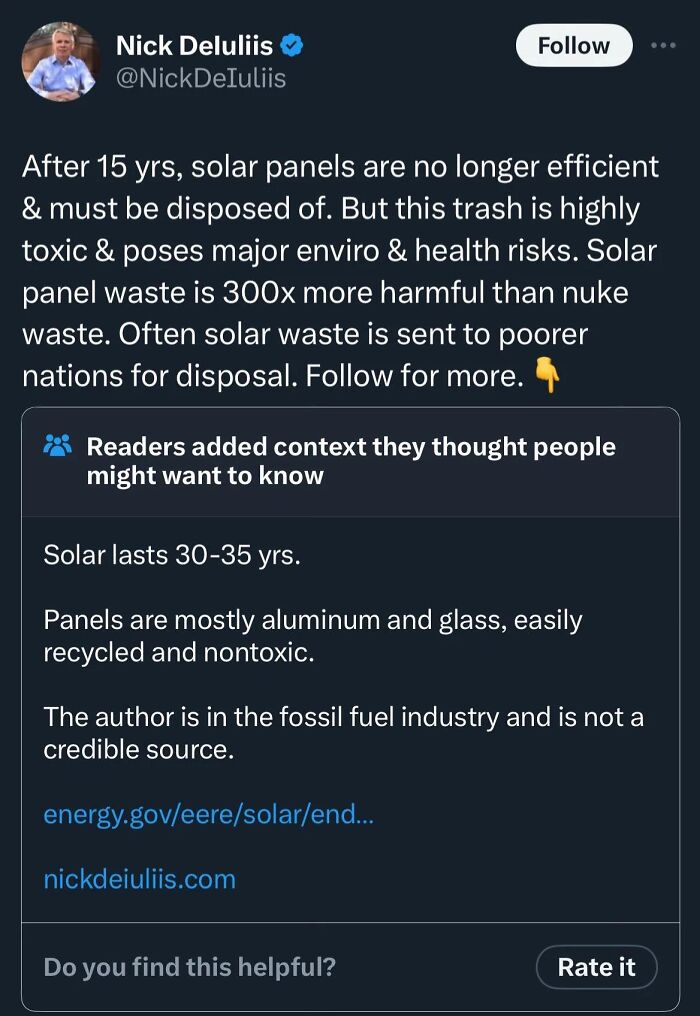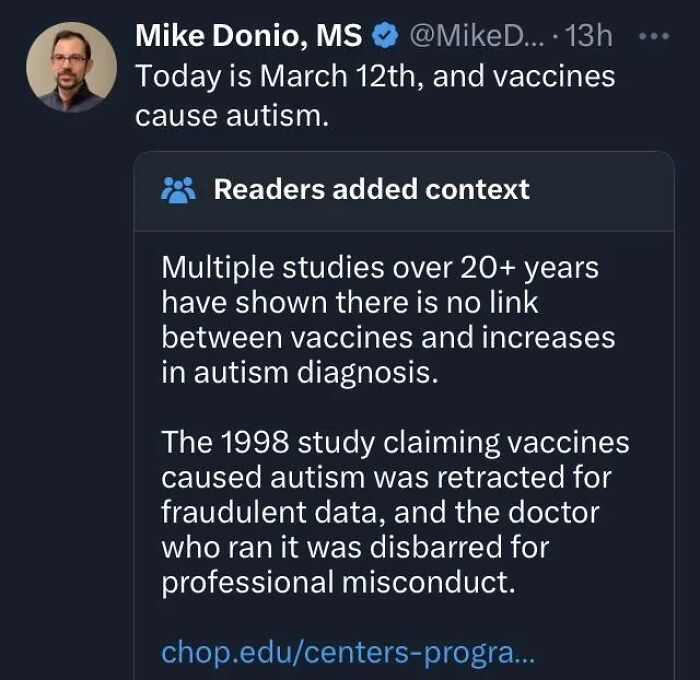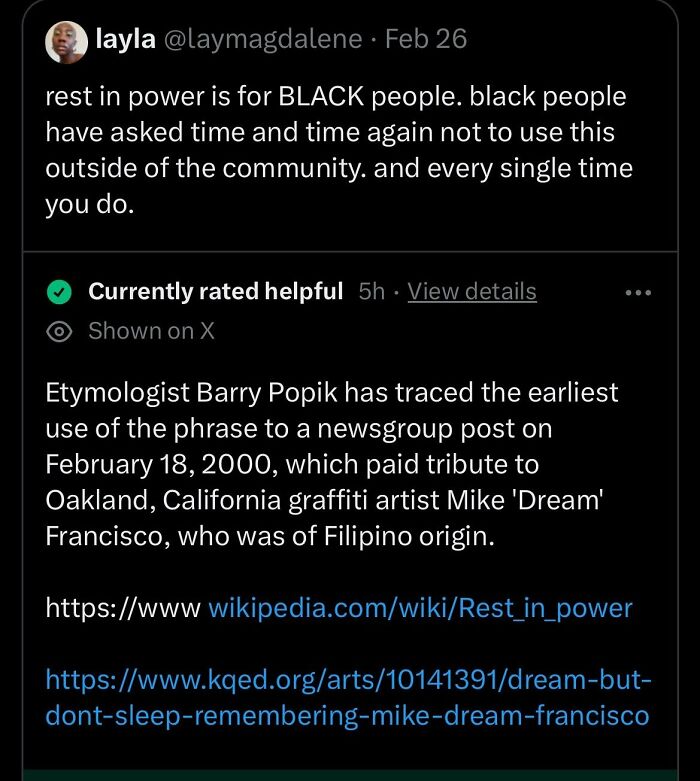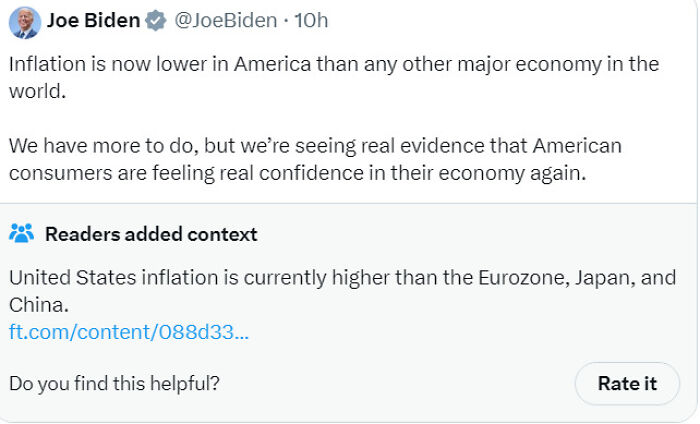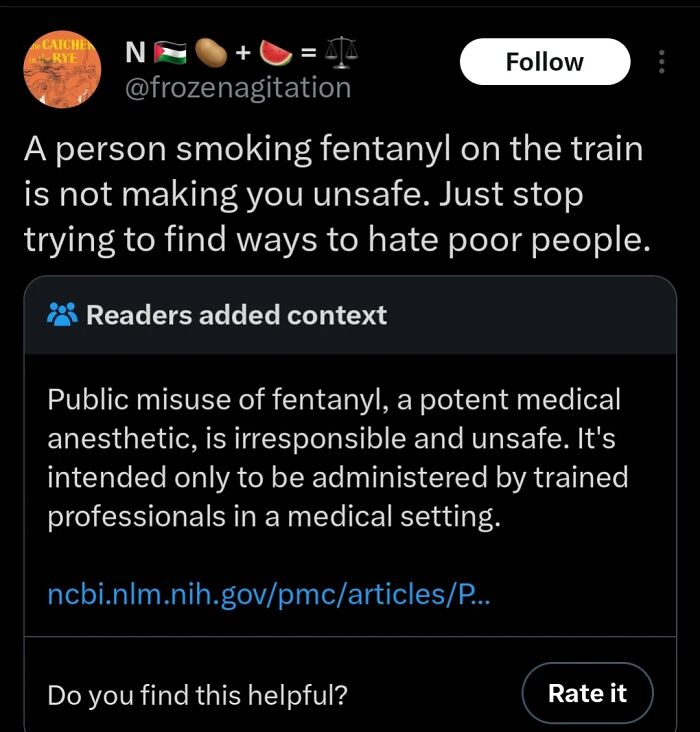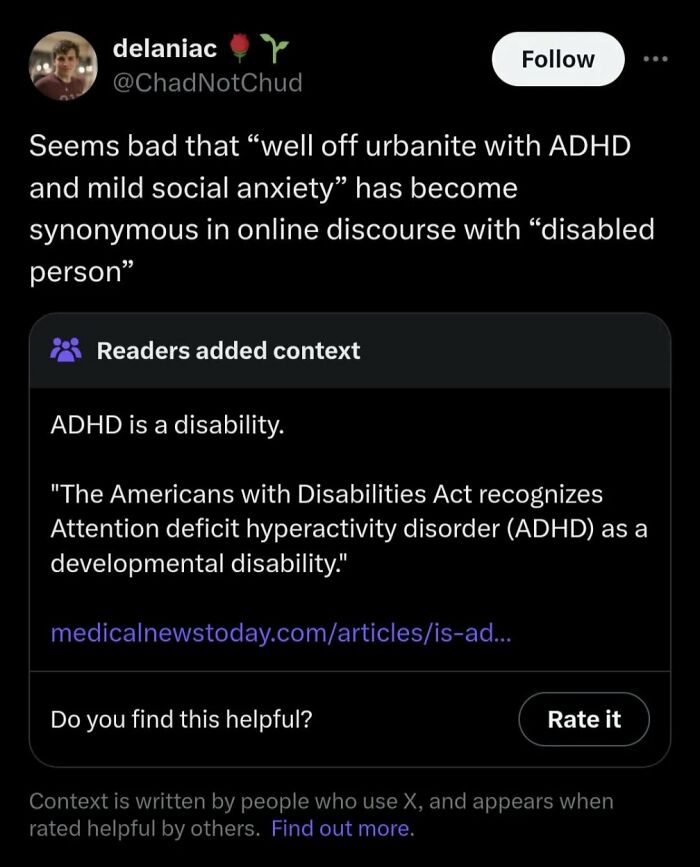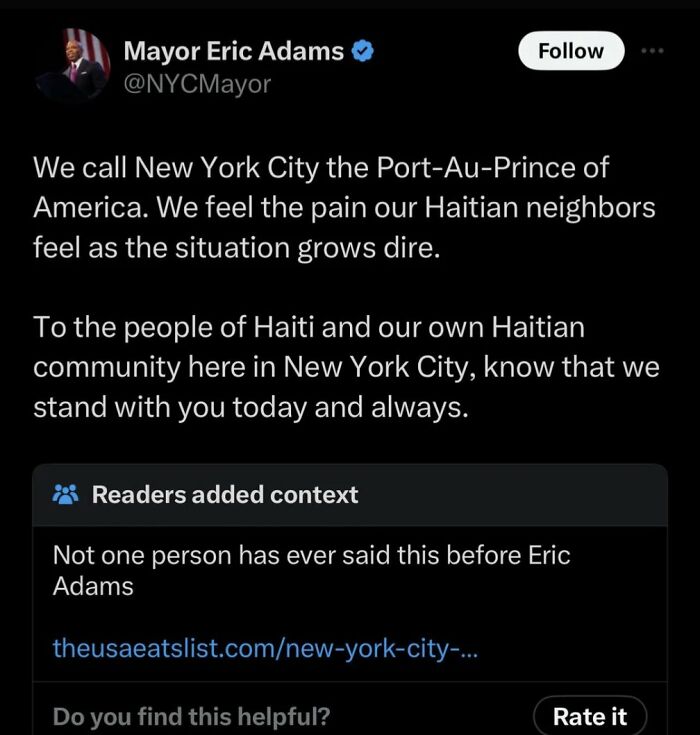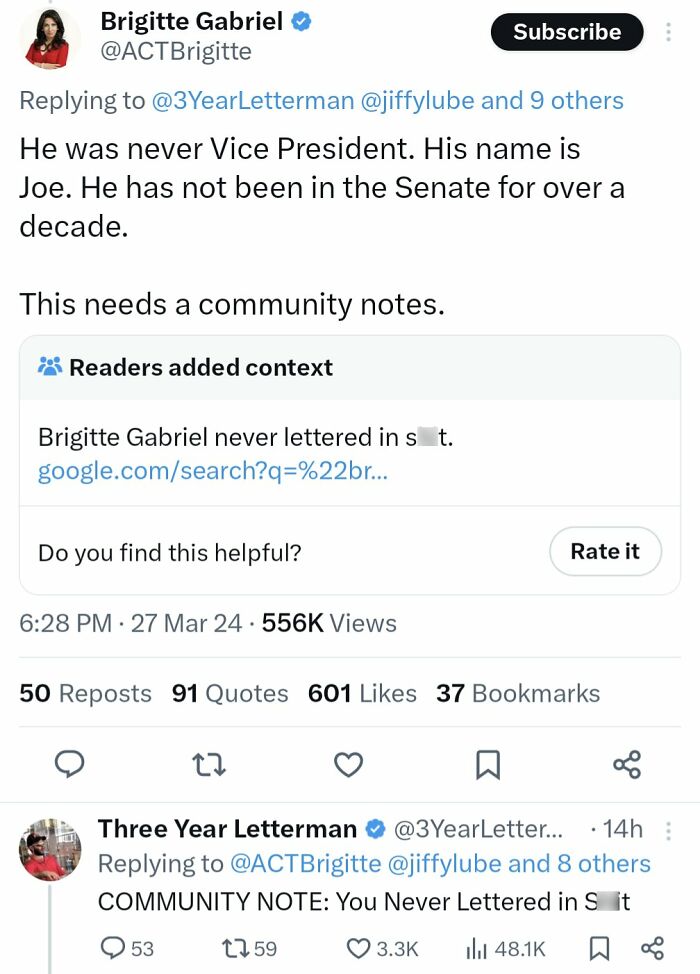
35 Of The Funniest Comebacks That Have Graced X’s Community Notes
Interview With ExpertHave you ever met a "know-it-all"? That one person who has an opinion about everything, regardless of their actual expertise. They're the ones who'll suddenly drop historical tidbits that seem to come from a parallel universe where facts take a backseat.
They’re the ones who’ll correct your pronunciation of quinoa at every party, followed by a lecture on its nutritional values. But you know what’s more fun than listening to them interject every conversation with an air of authority?
Witnessing someone humble them. Especially when it’s done in a savage manner. Just like these posts where people are roasting individuals for their ignorant opinions.
This post may include affiliate links.
Wanting to understand the reason behind a "know-it-all" persona, Bored Panda spoke to Gurpal Kaur, a Counseling Psychologist at Shridhar Life School, “A 'know it all' attitude often arises from a deep need for validation or control, stemming from underlying insecurities.”
She said, “Individuals may use their perceived knowledge to assert superiority or shield themselves from feeling inadequate. Past experiences of praise for intelligence can also reinforce this behavior. Understanding the complex motivations behind this persona requires a thorough examination of the individual's personal history and social dynamics.”
The batteries are the problem (both for houses and E-Cars), not the damn panels, because of unethical cobalt mining. That's what causes toxic chemicals to be spilled into nature, and child labor. However, the problem isn't the cobalt, it is the way it is mined - and nobody's fixing it because money.
Kaur, who is also a couples therapist, emphasized how such an attitude can significantly impact relationships. “Firstly, they can create feelings of resentment or frustration in others, as individuals may feel invalidated or belittled by the constant need for one-upmanship. This can lead to communication breakdowns and a lack of mutual respect within the relationship.”
“Moreover, such attitudes can hinder genuine collaboration and problem-solving, as the 'know it all' individual may be less open to considering alternative perspectives or solutions. This can lead to a sense of disconnection and alienation within the relationship, as the other person may feel undervalued or marginalized.”
And his credentials are suspect if "MS" stands for "Master's in Science." Besides, it is sort of cringe to put a master's degree after your name rather than waiting until you get your Ph.D. or M.D.
First the earthquake, now this.. Those devil worshiping liberals must be behind it! 😆
Such individuals may prioritize being right over building emotional connection. “This can create a dynamic of power imbalance and undermine the foundation of the relationship. Overall, 'know it all' attitudes can strain relationships by fostering feelings of resentment, undermining effective communication, and eroding trust and intimacy. Addressing these attitudes requires a willingness to cultivate humility, empathy, and openness to others' perspectives.”
Dealing with know-it-alls can be tricky but patience is the key, Kaur said, “One approach is to listen patiently, acknowledge their knowledge, but politely offer your perspective or ask questions to steer the conversation in a more collaborative direction. If that doesn't work, sometimes it's best to simply let them have their moment and move on.”
Cats can be vegan until they die, yes. It's another question how long it takes until one leads to the other.
Ah, I knew it! They are smuggling illegal basketball players over the borders!! The natural ecosystem of basketball will be destroyed by this new invasive species!
“Know-it-alls often seek validation and recognition to compensate for underlying insecurities. Understanding this, you can approach them with empathy and patience, validating their knowledge while gently redirecting the conversation to promote mutual learning and collaboration. Additionally, setting boundaries and assertively expressing your own expertise can help establish a balanced dynamic.”
If their behavior sometimes triggers feelings of frustration or inadequacy, it's important to recognize and address them constructively. “One approach is to focus on internal validation rather than seeking approval from others. Remind yourself of your own worth and expertise, and don't let the know-it-all's behavior undermine your confidence. Additionally, practicing mindfulness techniques such as deep breathing or visualization can help manage stress and maintain a sense of calm during interactions with know-it-alls.”
If anyone's interested, Korea and the coast of China were mainly affected by Japan colonizing it. However, we should not turn our noses too high about judging that, because our own people are no better. As the entire existence of the USA proves, the Spanish and Portuguese influence in all countries that are nowadays seen as part of Latin America, great Britain causing half of the world to celebrate an independence day from them, and that almost the entirety of Western Europe gobbled up land in Africa at the time. Humans can be really uuuurgh ... The important part is to learn from it so history doesn't repeat.
It’s especially challenging to deal with such individuals in an office setting. Imagine someone providing you with inaccurate information at work. This could result in errors and miscommunications that affect company projects. A know-it-all person can hinder the team's ability to work together towards common goals.
Indeed, correlation does not mean causation. Could be that people who were already at high risk for heart disease tried out fasting to be more healthy. That being said, I do intermittent fasting within reason and it has been very beneficial for me to not eat all the time, especially after dinner.
When dealing with a know-it-all coworker, it's wise to choose which conversations are worth engaging in. Rather than getting into a debate, a simple reply like "Thank you for the information" ensures you avoid unnecessary conflict. Not only does this help maintain professionalism, it also keeps the focus on productive interactions.
You absolutely can throw molotovs. You can then suffer the consequences.
Oh, how dare Mike to steal the thoughts of black people with his Filipino brain! /S
While pitching ideas or attending meetings with such colleagues, you should be prepared with solid facts. Always double-check your sources and ensure your information is accurate. For instance, you can bring statistics to support your points. The more prepared you are, the less opportunity they will have to challenge you.
Does passive fentanyl smoke hurt you? I have no knowledge whatsoever about the stuff, sorry. I assume the guy who smokes it will eventually die just like a crackhead would tho.
The real problem is when people blame their shîtty behavior on ADHD (or autism by that matter) so they can claim they're disabled and you can't say anything bad about them - instead of just standing straight for the fact that they are just an aśshole. Mental illness has nothing to do with wether you're a decent human or not.
Nancy Collamer, a career coach and author, was quoted saying, "If 'Mr. Know-it-all' tries to dominate the conversation, you'll have documented evidence to share with the group. Being well-prepared minimizes the chance of the know-it-all taking over the discussion." This proactive approach guarantees that everyone's contributions are valued.
I think I understand what the OP was trying to say. By "feeding", he means like when a mother breastfeeds her child: selflessly and without compensation. Farmers don't feed people, they sell them food. The response did not refute the claim.
What's a turbononce? I'm hearing this word for the first time right now
According to studies, people who receive feedback are 12.5% more productive than those who don’t receive any feedback. It's important to understand that people may be unaware of the impact their behavior has on others. In such cases, offering constructive feedback is beneficial. However, pointing this out during a private discussion is better than doing it in public.
Whether it's a party or a family gathering, there's a know-it-all everywhere you go. Thankfully, you can often find ways to avoid them. Unfortunately, this is not the case in the office. While we need to interact with colleagues in a civilized manner, there are people who give savage responses to others for their less-than-informed opinions.
this requires a little context for it to fully make sense. This Nick guy has been hit with multiple community notes before for things he has said, and now he and the community noters are going at each other
Girls SHOULDN'T use each other's underwear because of hygiene, but that doesn't mean they don't do it. As a teenage girl, me and my friends/nieces would definitely borrow each others underwear at sleepovers or holidays if you forgot to bring enough and someone else had spares. Me and my mom would wear each other's underwear if laundry was late. And borrowing someone else's bikini, including the bottom part, was super super common amongst girls, I think every girl my generation did that regularly. Granted, this was in the 90s and 00s, it might be different now. It's a unwise thing to do, yes, but to say that no girls do it and that it must be a fetish, is completely ridiculous.
The catholic church sent thousands to bonfires, has sexual and pædophilia-related scandals, dark financial practices, had the crusades, and turned their face off the Jews in WWII so I don't think a fake hand-breaking apparatus could make their reputation worse.
I love pineapple on pizza. Thank you Canada.
Entertaining but misleading if you're not on Twitter (don't start with me with this X c**p). These are the jokey ones, not the usual. I've found them very helpful. These days, it's just getting harder to tell what's real and what's blown out of proportion and what's totally made-up sometimes. That's when the notes really help sort things out.
Entertaining but misleading if you're not on Twitter (don't start with me with this X c**p). These are the jokey ones, not the usual. I've found them very helpful. These days, it's just getting harder to tell what's real and what's blown out of proportion and what's totally made-up sometimes. That's when the notes really help sort things out.

 Dark Mode
Dark Mode  No fees, cancel anytime
No fees, cancel anytime 






